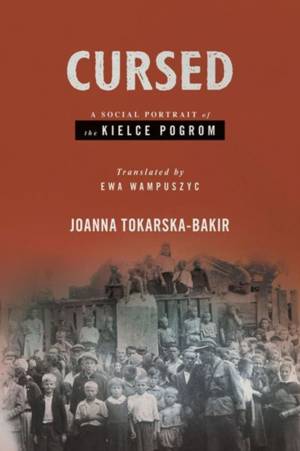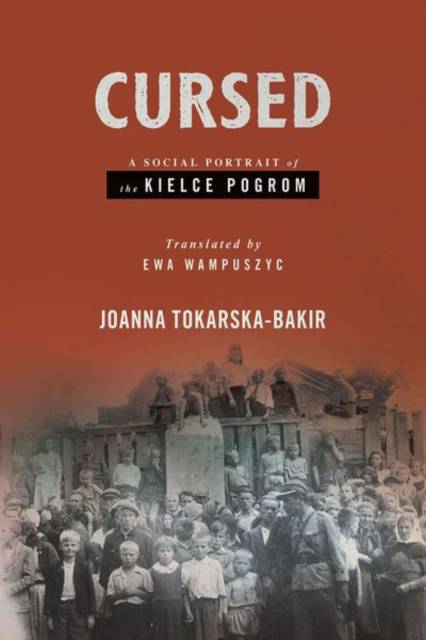
- Retrait gratuit dans votre magasin Club
- 7.000.000 titres dans notre catalogue
- Payer en toute sécurité
- Toujours un magasin près de chez vous
- Retrait gratuit dans votre magasin Club
- 7.000.0000 titres dans notre catalogue
- Payer en toute sécurité
- Toujours un magasin près de chez vous
Description
In Cursed, Joanna Tokarska-Bakir investigates the July 4, 1946, Kielce pogrom, a milestone in the periodization of the Jewish diaspora. This massacre compelled thousands of Polish Jews who survived the Holocaust to flee postwar Poland. It remains a negative reference point in the Polish historical narrative and represents a lack of reckoning with the role of antisemitism in postwar Polish society and identity politics.
Tokarska-Bakir weaves together the voices of the Kielce pogrom survivors, witnesses, and perpetrators with a myriad of other archival sources. Her meticulous research exposes wartime and postwar biographies of local factory workers, city and church officials, local police officers, and members of the security service, some of whom participated in the Holocaust and then directly or indirectly participated in the Kielce pogrom. Tokarska-Bakir paints a social portrait that explores people's behavior in light of forces and emotions greater than themselves. She reconstructs a postwar communist system that, despite promises to combat deeply rooted antisemitism, not only failed to prevent its spread but turned a blind eye to it and eventually used it to legitimize itself.
Cursed is a microhistory that recreates the events of the Kielce pogrom step by step and examines the dominant hypotheses about the pogrom through the prism of previously classified archival evidence. It offers readers a nuanced analysis that cuts across social and ideological divisions. The resulting narrative is filled with new discoveries not only about the Kielce pogrom but about the nature of antisemitism, hostility toward minorities, and collective violence.
Published in Association with the United States Holocaust Memorial Museum.
Spécifications
Parties prenantes
- Auteur(s) :
- Editeur:
Contenu
- Nombre de pages :
- 592
- Langue:
- Anglais
Caractéristiques
- EAN:
- 9781501771484
- Date de parution :
- 15-11-23
- Format:
- Livre relié
- Format numérique:
- Genaaid
- Dimensions :
- 158 mm x 232 mm
- Poids :
- 929 g

Les avis
Nous publions uniquement les avis qui respectent les conditions requises. Consultez nos conditions pour les avis.






